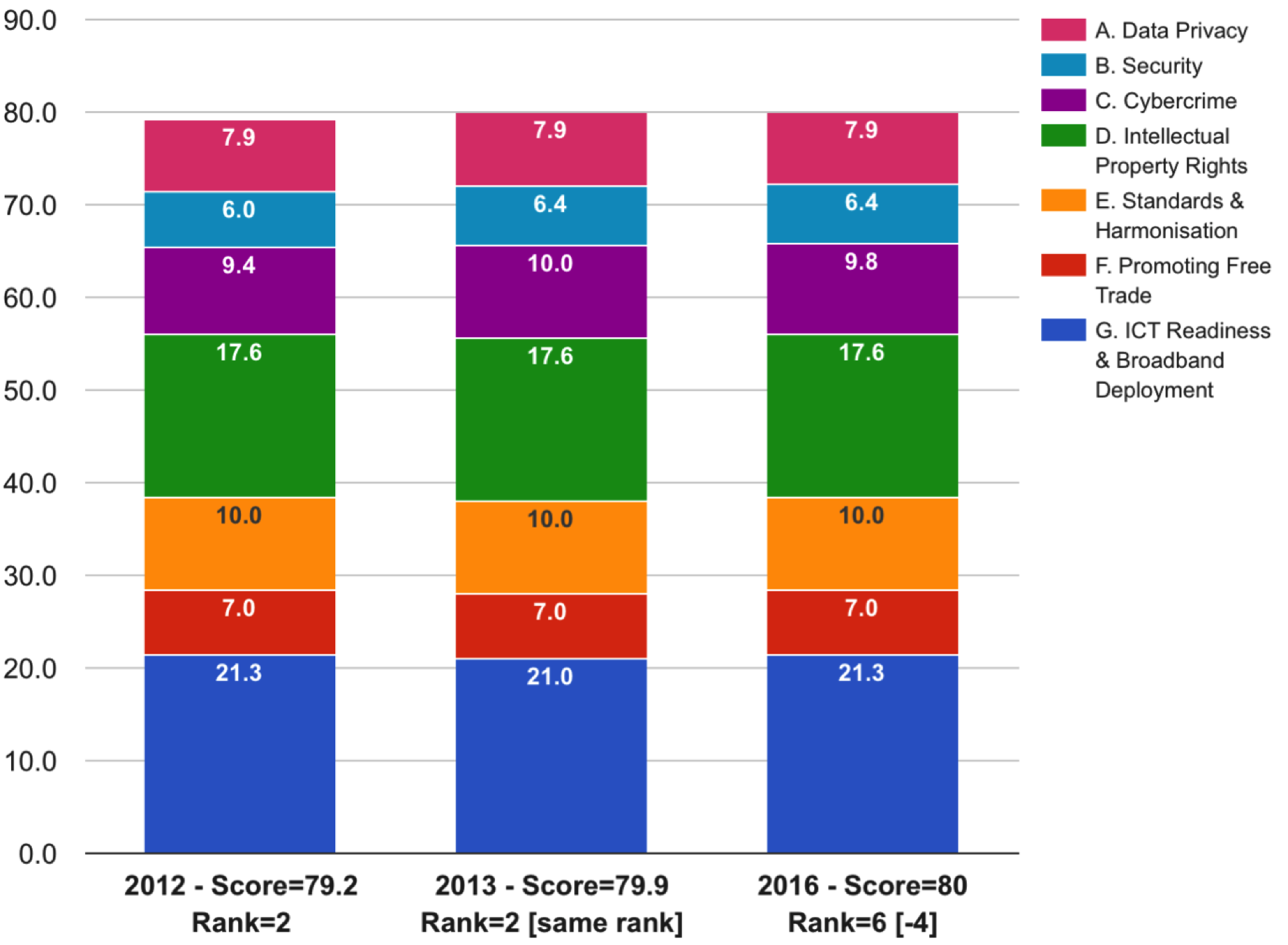BSA & Galexia Global Coud Computing Scorecard (2016) - Galexia Analytics Release
2016 Rank 6. Australia - Score: 80 | Change from 2013 Score: +0.08 - Rank: -4
Australia promotes cloud computing through a mix of modern laws, regulations, and standards. For example, Australia has a strong commitment to international cooperation, free trade, and interoperability. Key laws are based on international models, and Australia is an active participant in the development of international standards.
Australia has up-to-date cybercrime laws and ratified the Convention on Cybercrime in 2012. However, Australia’s score in the section on security and cybercrime was impacted by new, cumbersome data retention requirements.
Australia also has comprehensive electronic signature and electronic commerce laws. Australia’s privacy laws are up to date, although a proposed data breach notification requirement has not yet been implemented.
Intellectual property laws in Australia provide a comprehensive and balanced layer of protection for cloud computing services and the digital economy. However, some uncertainty remains regarding Internet service provider (ISP) liability for copyright breaches that occur when subscribers participate in peer-to-peer sharing of copyrighted material, especially in relation to enforcement.
Australian information technology (IT) infrastructure is reasonably well developed. However, Australia revised its model for the National Broadband Network in 2014. It is forecasted to provide 8 million connections at speeds of 25-50 Mbps through fiber to the node (FttN) and hybrid fiber-coaxial (HFC) connections. This level of coverage is very limited compared to previous proposals. No rollout timetable has been released, however trials of the FttN and HFC were underway as of 2015.
Overall, Australia’s scorecard results fell slightly in the 2015 report, as the country was overtaken by other fast- moving countries. A small reduction in the IT infrastructure score (due to a lower broadband score) and the problems identified above with the new data retention scheme, resulted in Australia falling from 2nd place to 6th place in the Scorecard rankings.
View the Country Report (PDF) »

![[ Galexia Dots ]](/images/hr.gif)

![[2016 Global Cloud Computing Readiness Scorecard]](/public/ssi/pubs/pub_2.png)
 print this page
print this page sitemap
sitemap rss news feed
rss news feed manage email subscriptions
manage email subscriptions